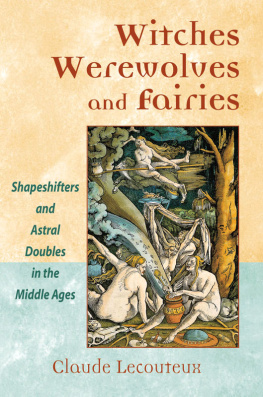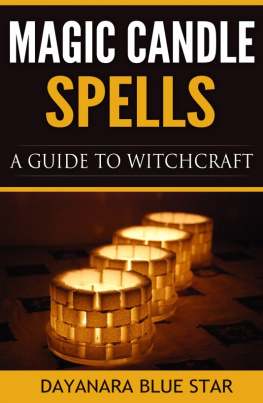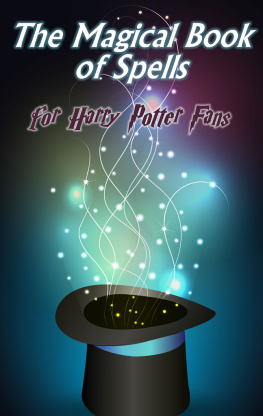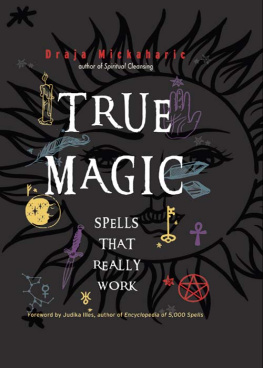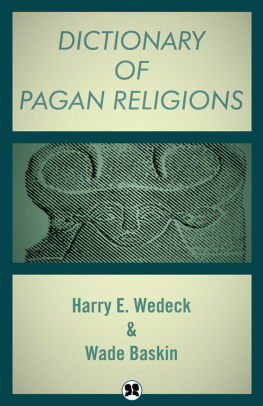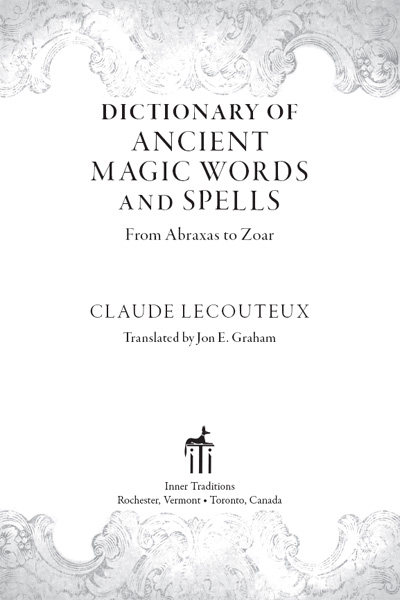
To Corinne and Benot
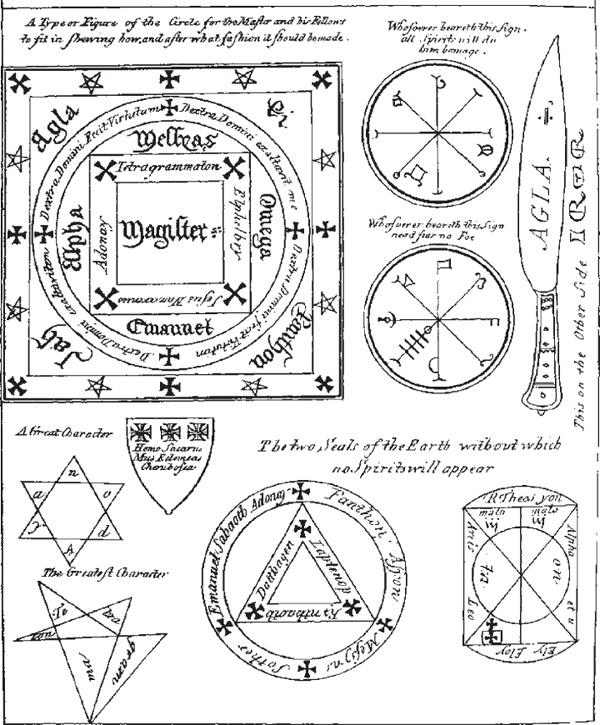
From Reginald Scot, Discoverie of Witchcraft, 1584
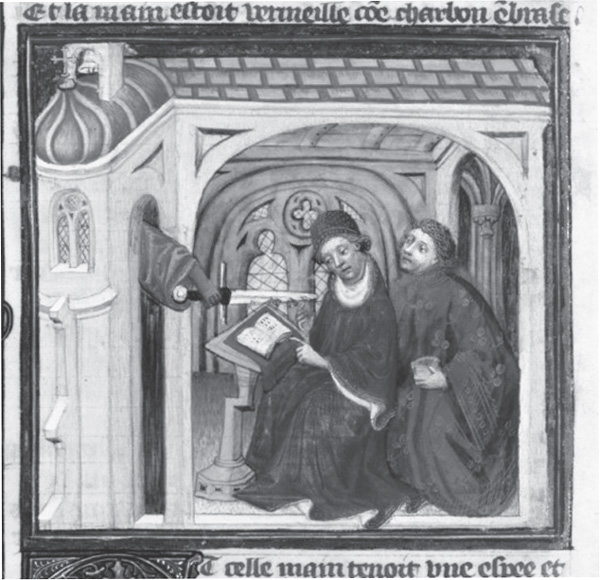
Elijah conjuring, thirteenth-century manuscript
ACKNOWLEDGMENTS
It is with great pleasure that I offer thanks to the individuals who helped me complete this task: Daiva Vaitkeviien (Vilnius, Lithuania) and Ronald Grambo (Kongsvinger, Norway), without whose help I would have been unable to grasp many dialectical turns of phrase in the Scandinavian grimoires; Emanuela Timotin (Bucharest, Romania), who introduced me to Romanian charms; Gian Marco Mondino (Torino) who was able to procure a copy of the Libro de secreto, Ane Ohrvik (Oslo) and Julien Vronse (Paris) who sent me their studies on charms.
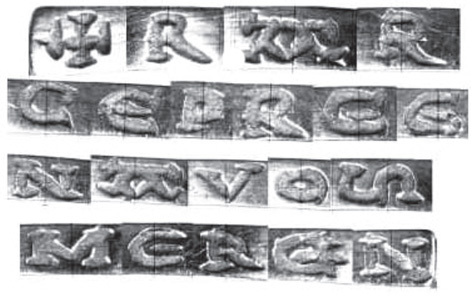
Magical inscription on a sixteenth-century ring
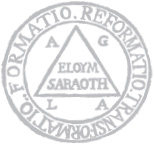
PRAEAMBULUS
WORDS THAT POSSESS A POWER
From Abracadabra to the Avada Kedavr These phrases can be found in charms (from the Latin carmen, meaning song), orisons, blessings, conjurations, and medical prescriptions.
SOME DEFINITIONS
Orisons are magic prayers that conceal their true nature behind a Christian exterior, most often through references to Jesus, Mary, the evangelists, and so on. Blessings can be pagan or Christian, but either way they share the same structure: they are used to summon good fortune on an individual; they are the opposite of curses. Conjurations are used to summon supernatural beings whose assistance is required as well as to perform the exorcisms necessary to banish the malevolent entities embodied in misfortunes. These entities are most often encountered in remote solitudes and deserted regions where men rarely travel. As for the short notes still known today as brevets in France, they are most often found on amulets of parchment or paper that contain Kabbalistic phrases that have been encrypted through the use of characters known as Solomonic writing, Ephesian letters,
PAGANISM AND CHRISTIANITY
While the bulk of the charms are intended to provide protection and to heal illnesses affecting men and livestockand are thus suggestive of what we might customarily describe as medical prescriptionssome are truly magical because of the entities they call on through strange phrases and words. Like the pagans, medieval Christians believed that disease was sent by the devil or by demons, The cross and Christs wounds became beneficial aids: crux et passio Christi sint medicina mei (the cross and the suffering of Christ are my medicine). An English charm dating from the second half of the fourteenth century also invokes the tears of the Virgin, the Three Magi, and the secret names of God:
Sint medicyna mei pia crux et passio Christi
Vulnera quinque dei sint medicyna mei!
Virginis et lacrime mihi sint medicamina trina,
Her mihi portanti succurrant febricitanti! Amen
Ag.l.a.JasparMelchysarBaptizar
Another account from this same country, a benediction intended to encourage a good labor and delivery, provides an accurate image of the blend of the Christian sacred and the pagan profane in this kind of prescription:
Boro berto brioreVulnera quinque dei sint medicina meiTahebalghetherguthman
Here the five wounds of Christ are framed by magical pagan phrases.
It can be noted in passing that every affliction is a bond, that demons are binders, and that the Christian figures undo these bonds. Sometimes these demons names are given to us. They are dwarves and elves, trolls and gnomes who shoot invisiblearrowsatyou. and Porphyry stated that the demons would be free to choose where they wanted to dwell. It was therefore necessary to find protection as well from their human auxiliaries, such as magicians and sorcerers, and to do this, people resorted to esoteric practices that enlisted invisible beings, the foremost of which were the gods or God.
THE USEFUL NATURE OF THE SPELLS
One of the purposes of magical phrases and words was the protection of people and property. It involved preventing something from happening or halting an action already at worka fire or the effects of a curse, projectiles (arrows, then bullets) or the bite of bladed weapons. An entire series of apotropaic (protective) charms aimed at providing shelter from evil spells, the sudden death of livestock, and theft, and here a large number of recipes indicate how to uncover a thief by subjecting him to a magic test or by forcing him to return his booty. A subcategory of these recipes, which is suggestive of black magic, teaches how to blind a thief in one eye from a distance, paralyze him, or otherwise get ones revenge on him.
The bulk of the spells come from healing charms. Johann Weyer (15151588) provides a good overview of these in his Cinq livres de l imposture des diables, des enchantements, et sorcelleries (Five Books on the Imposture of Devils, Enchantments, and Sorceries), published in Paris in 1570, from which I have drawn this example:
There are some who to staunch the flow of blood take a cup of cold water, into which they drip three drops of blood, and at each drop say the dominical orison with the angelic salutation. They then give it to the patient and ask him: Who will help you? The patient answer sit will be the Holy Mary. They then say: sancta Maria hunc sanguinem firma, meaning, Saint Mary, stop this blood flow. Others write on the patients forehead with the blood that drips out: Consummatum est, meaning: All is achieved. Others to stop the blood flow say these words: sanguismanefixus in tua vena sicut Christus in sua poena: sanguis mane fixus sicut Christus quando fuit crucifixus. This means: Blood remain in your vein like Christ in his torment; blood remain still like Christ when he was crucified. They say this should be repeated three times. Another says De latere eius exiuit sanguis et aqua, meaning, blood and water come out his side. Others think that the flow of blood from several parts of the body can be stopped with these words: Christ was born in Bethlehem and suffered in Jerusalem; his blood is troubled; I tell you to stop it by the power of God and by the aid of all the saints; just as in the Jordan in which Saint John baptized our Lord Jesus Christ, in the name of the Father and the Son and the Holy Ghost. Hold the nameless finger in the wound and make three crosses on it; say five Our Fathers and Hail Marys, and once the Apostles Creed in honor of the five wounds.
Then there are the spells intended to grant ones wishes. These range from desires for wealththrough the discovery of hidden treasures!to catching fish, and doing so with a net or a line is spelled out, to winning the love of a person one lusts after, by way of curious spells such as the one that helps a woman weave a blouse, makes her dance, or makes an entire household dance against its will. Oddly enough, spells for invisibility rarely accompany magical phrases and words.


